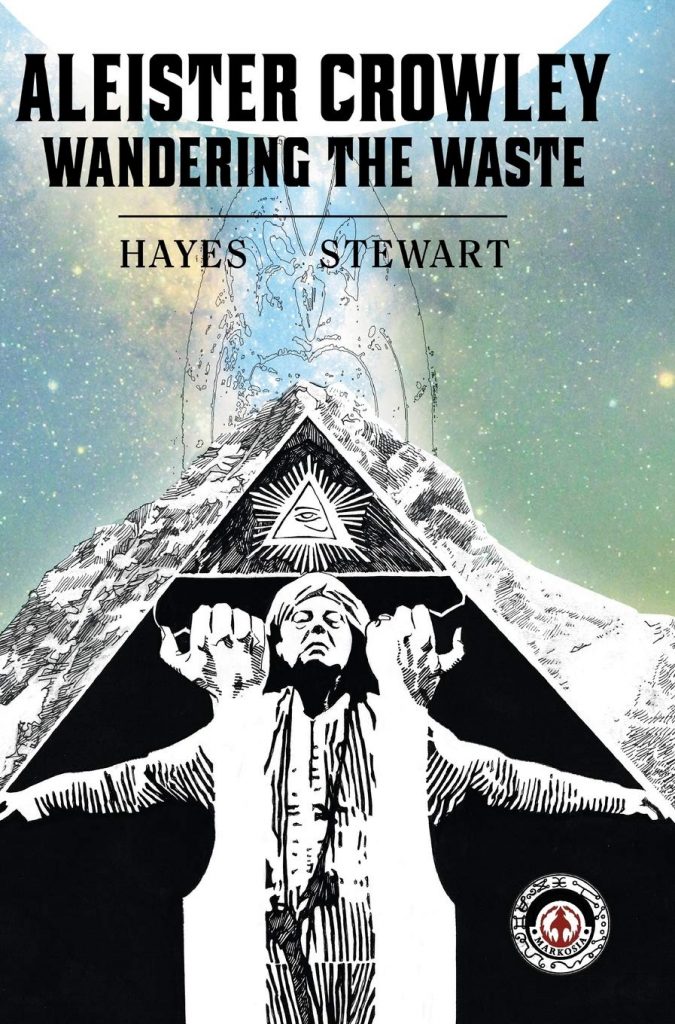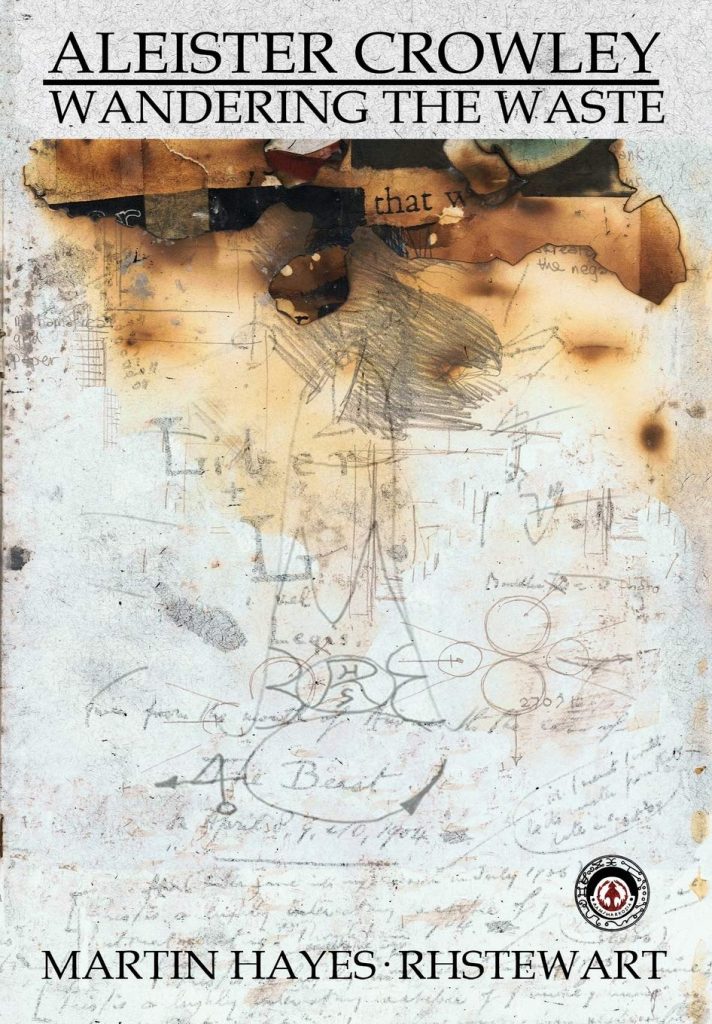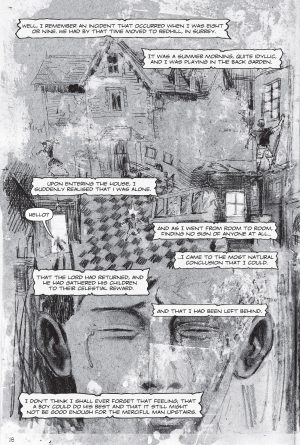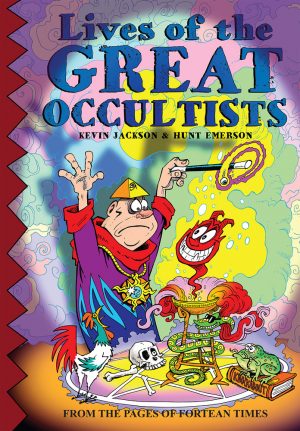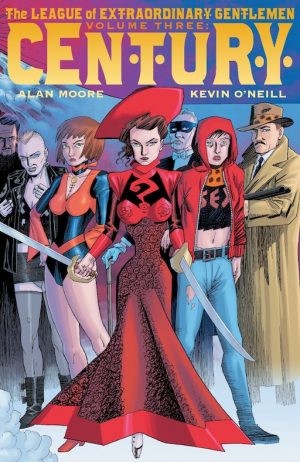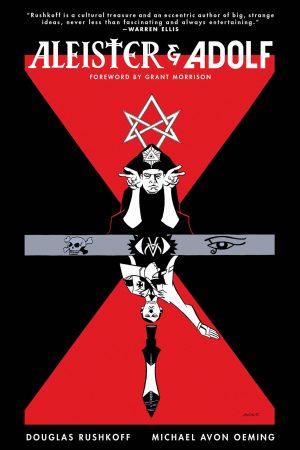Review by Ian Keogh
Aleister Crowley was an all-purpose bogeyman for the early 20th century, a drug user, libertine, occultist and vocal critic of the British establishment. In presenting his biography Martin Hayes and RH Stewart begin at the end, with the infirm old man in his early seventies dying in lodgings he’d taken in Hastings, approached to tell his story by would-be biographer, the fictional William Keyes.
Hayes has that story roll out as told by Crowley, whose voice transmits as you’d imagine. Crowley was an early exponent of controlling the message, so although the reliability of an egotistical narrator can be called into question, he’s eloquent, erudite and sardonic, beginning with his strict Christian upbringing and the contempt it instilled.
Crowley was a man who positively relished obfuscation, so would probably enjoy Stewart’s art, which lays one set of inked illustrations over pencilled backgrounds or textured washes, which sometimes makes the focus unclear. It doubles as an attempt to transmit the world as Crowley saw it, with boundaries to be breached, but also disguises that Stewart isn’t the best at either figures or faces, and his style of drawing them constantly morphs. This is beyond the differing styles used for past and present day. He compensates by the liberal scattering of ephemera, surrounding Crowley’s recollections with fixed objects or abstractions relating to what he’s discussing.
It’s the lifelong interest in mysticism proving the primary focus, but after the turn of the 20th century in fragmentary fashion, as Crowley recalls through his delirium and self-administered drugs. He seeks out others from whom he can learn, most of whom eventually disappoint him. The sheer nuttiness of some behaviour is highlighted, including a commune where on pain of punishment only Crowley was permitted to refer to himself in the first person. For all his pomposity Crowley had a sense of humour, and this is also brought out, the funniest moment also the crudest.
The cartoon villain personality shouldn’t discount Crowley’s achievements as a talented mountaineer, poet and painter, given due accord, and Hayes is very diligent about his sources. Around a quarter of the page count is allocated to annotations and verifications, Hayes explaining which of contrary versions he selected for the biography, while the chapters are separated via quoting liberally from Crowley’s writings and those about him.
There are still many obsessed with Crowley, convinced he accessed a higher plane, and they might be disappointed that Wandering the Waste skirts around much of his history, hinting at occult achievement instead of spelling it out. A barely recognised talent of Crowley’s, though, was his propensity for research, and as a primer Wandering the Waste hits the right spots, with the caveat that a different artistic approach would have resulted in a more user-friendly book.
